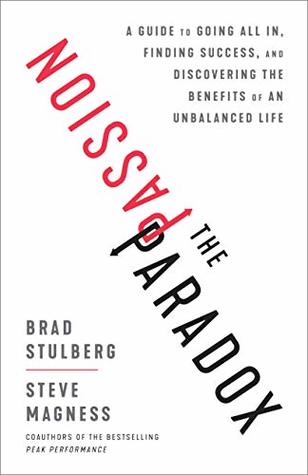More on this book
Community
Kindle Notes & Highlights
Read between
October 6, 2019 - January 16, 2020
doubts. Passion often comes at the expense of time and energy spent on family, friends, and other activities, including the simple joys of
three P’s: Passion plus persistence equals possibility.”
When your goal becomes your path and your path becomes your goal.
passion is fragile, and it must be handled with care.
passion isn’t just linked to happiness, health, performance, and life satisfaction, but also to anxiety, depression, burnout, and unethical behavior.
passion is not an emotion that should be left to its own devices but rather one that should be harnessed with deliberate intention.
We don’t get hooked on the feeling associated with achievement, we get hooked on the feeling associated with the chase.
We don’t get hooked on the feeling associated with achievement, we get hooked on the feeling associated with the chase.
We’re not wired to simply be content. We’re wired to keep pushing.
Emerging science suggests that individuals with ADHD tendencies might be less sensitive to dopamine, meaning they need even more of the neurochemical to feel content.
The line between what we consider a destructive addiction and a productive passion is a fine one, if such a line exists at all.
There is a biological reason why the wonderful feeling of passion cannot coexist with the wonderful feeling of contentment. Passion builds on itself: the more we push, the more we get hooked on the feeling of pushing.
passion may be rooted at least partially in something that Sigmund Freud long ago called ego fragility.
popular phrase “talent needs trauma.”10
“Trauma from times past,” says Gibson, “creates an inner-mongrel which refuses to give up until the ‘prize’ is won.”11
the relentless pursuit of an objective can also serve as an escape.
Throwing ourselves wholly into a passion shrinks our world, overshadowing whatever inner struggles we may be facing and making us feel comfortable and in control. Our obsessions become a refuge.
It’s not surprising that so many great
athletes, creatives, and entrepreneurs, following their retirement, struggle with substance abuse and gambling addiction. If we don’t move on from our passions thoughtfully (a topic we’ll discuss later on), the same underlying biology and psychology that give rise to excellent pursuits can also give rise to harmful ones. Passion and addiction are close cousins.
“When starving, when in love, and when parenting, being able to persist despite negative consequences—the essence of addictive behavior—is not a bug, but a feature, as programmers say. It can be the difference between life and death, between success and failure,”
Individuals we praise for passion—who go on to experience huge successes—are often those who have a found a way to turn what could be seen as biological and psychological weaknesses into strengths.
enduring motivation comes from satisfying three basic needs: competency, autonomy, and relatedness.6
multiple rejections, was finally accepted for publication. And
A common trajectory goes like this: You find and cultivate your passion; you pursue it incrementally until you have the faith to go all in; you go all in (or damn near close), start crushing it, love your more passion-filled life, and perhaps even begin getting positive recognition
“Human freedom is restricted to the extent to which we are bound to our own egos. By being bound to our egos we stand in our own way…If I am what I have and if what I have is lost, then who am I?”
Hedonic adaptation says that we quickly adapt to a state of happiness or contentedness, and it’s not long before we’ll want more. Centuries before hedonic adaptation became an academic concept, the Buddha also had a term for this never-ending pursuit of external success: He called it suffering.
“When fear dies, you begin to live.”
First, set a goal—but remember, it should serve more as a direction than a destination.
Your pursuit ceases to be something you are aiming for and becomes a part of who you are.
“Better” is about how the practice of your passion transforms you as a person.
This shift becomes especially important as we age, losing some of our physical and perhaps even cognitive abilities:
“The master has failed more times than the student has even tried.” We’d
“To learn anything significant, to make any lasting change in yourself, you must be willing to spend most of your time on the plateau.”
“You’ve got to be a minimalist to be a maximalist; if you want to be really good, master and thoroughly enjoy one thing, you’ve got to say no to many others.”
“The best way to find contentment is to give something your all.”
“stress + rest = growth.”


